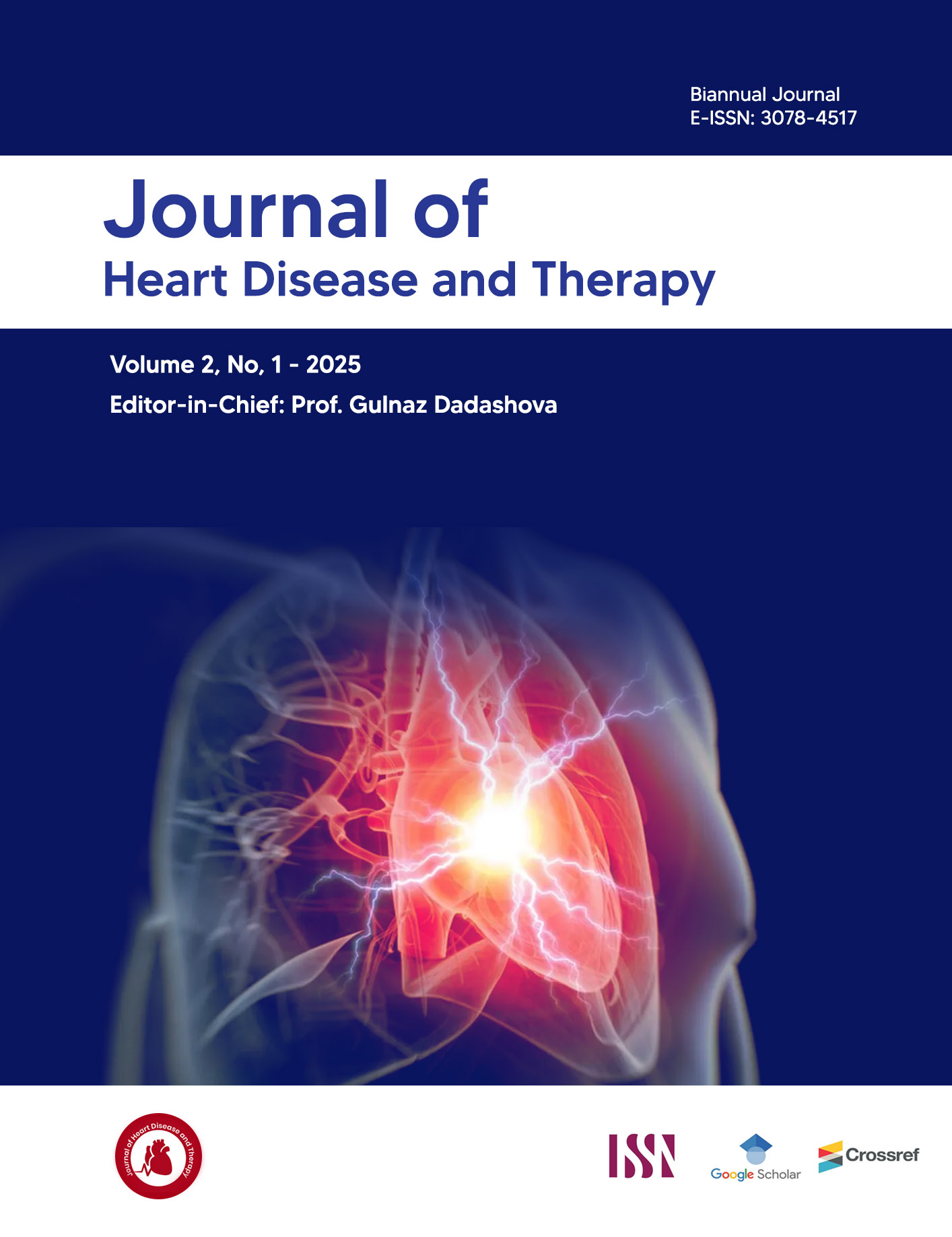The Effects of Omega Oils on Atrial Fibrillation: A Comprehensive Review
DOI:
https://doi.org/10.71295/JHDT.2024.010106Keywords:
Atrial fibrillation, Omega fatty acids, Cardiac arrhythmiaAbstract
Atrial fibrillation (AF) is a widespread cardiac arrhythmia associated with significant morbidity and mortality, affecting millions of individuals worldwide. In recent years, omega-3 polyunsaturated fatty acids (PUFAs), commonly found in fish oils, have garnered attention for their potential roles in cardiovascular health, particularly in the prevention and management of atrial fibrillation. The biochemical properties of omega-3 fatty acids, their anti-inflammatory and membrane-stabilizing effects, suggest a potential role in AF pathophysiology. This review aims to systematically assess the literature on omega-3 PUFAs' effects on atrial fibrillation, focusing on primary and secondary prevention, postoperative AF, and the underlying biochemical mechanisms. Drawing upon 20 key studies conducted since 2010, this article evaluates the clinical evidence and provides insights into the potential therapeutic use of omega-3 fatty acids in atrial fibrillation management. The review also outlines future directions for research to determine the optimal dosage, patient population, and long-term effects of omega-3 supplementation.
Downloads
Downloads
Published
How to Cite
Issue
Section
License
Copyright (c) 2024 Cahan Qurbanova, Firuza Abbasova, Sabina Babayeva, Elxan Hajiyev, Asiman Hasanov

This work is licensed under a Creative Commons Attribution-NonCommercial-NoDerivatives 4.0 International License.








